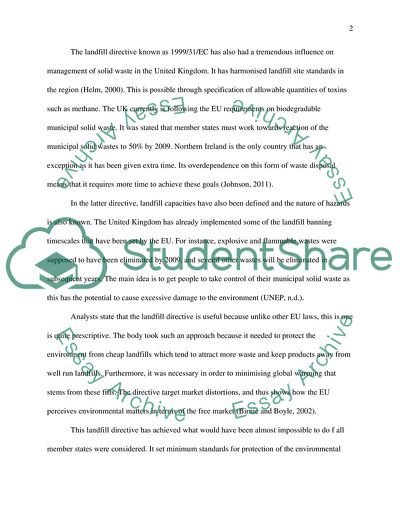Cite this document
(Waste Management: The Influence of EU law on Domestic UK law Term Paper, n.d.)
Waste Management: The Influence of EU law on Domestic UK law Term Paper. https://studentshare.org/environmental-studies/1808827-waste-management
Waste Management: The Influence of EU law on Domestic UK law Term Paper. https://studentshare.org/environmental-studies/1808827-waste-management
(Waste Management: The Influence of EU Law on Domestic UK Law Term Paper)
Waste Management: The Influence of EU Law on Domestic UK Law Term Paper. https://studentshare.org/environmental-studies/1808827-waste-management.
Waste Management: The Influence of EU Law on Domestic UK Law Term Paper. https://studentshare.org/environmental-studies/1808827-waste-management.
“Waste Management: The Influence of EU Law on Domestic UK Law Term Paper”. https://studentshare.org/environmental-studies/1808827-waste-management.


